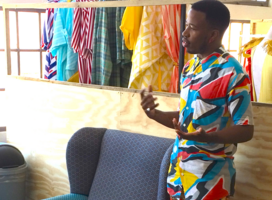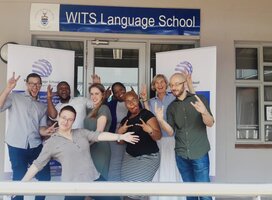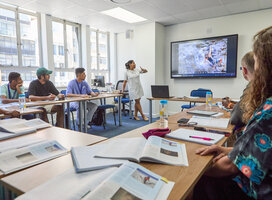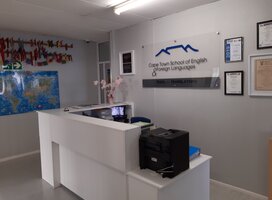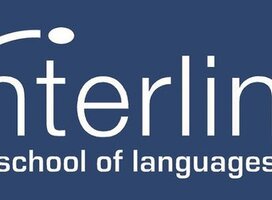English Language Schools in South Africa
Ready to bypass the typical path of studying English in the US, UK, or Australia, and head somewhere a little more unique?
South Africa probably isn't first on the list of most prospective English students, but maybe it should be. The "Rainbow Nation" has it all: cosmopolitan cities, rich culture, stunning natural landscapes, a strong economy, and a comfortable climate. Cities like Cape Town and Johannesburg are booming economic and cultural centers, while the coast and rural regions are home to incredible wildlife and some of the world's best surfing.
Since beginning to emerge from the shadow of apartheid two decades ago, South Africa has become one of the "miracle" countries of the continent. Its expanding economy and relative political stability have helped it become a rising global power, and its natural beauty and history attract visitors from all across the globe. Why not join them and learn English in one of the world's most dynamic, diverse countries?
English is one of the 11 (yes, 11!) official languages of South Africa. It's actually the first language of only about 10 percent of the South African population, but, luckily for you, English is the official language of business, politics, media, and a significant portion of higher education. Here are some of the different options for English language learners in South Africa.
University Courses
Most of South Africa's top universities offer the majority of class instruction in English. These universities are a great option if you're interested in completing a full university degree in English in South Africa, or looking to enroll directly in a study abroad program.
As a university student, you'll be expected to have at least an intermediate level of academic English before you begin classes, so this might be best suited to more advanced English speakers. Remember that each institution will have its own requirements and prerequisites: some may also require you to take English classes as part of the program.
Private Language Schools
Language schools and institutes are a great choice for English language learners who don't want to do a full university program, only have a limited amount of time, aren't yet at a university level, or are looking for a potentially budget-friendly option.
Cities like Cape Town and Johannesburg have a number of these schools, which offer flexible programming at multiple levels to fit students' needs and schedules. Some schools can even help you find housing or place you with a host family, which allows you even more opportunity for cultural exchange and immersion.
Private Tutoring
If you'd rather have one-on-one instruction or want to focus on specific skills, it might be worth taking private classes with a language tutor. Many tutors charge as little as US$10-12 per hour, so tutoring could actually be a fairly affordable option.
Housing
Some universities and study abroad program providers will offer accommodation as part of the program, or as an additional option. If you're enrolling in a local university, be sure to ask about student housing options. Even if your program or school doesn't offer its own housing, staff may be able to help you find accommodation or place you in a homestay. You want to live somewhere that's safe, comfortable, and accessible, so make sure to ask for more information about neighborhoods and transportation before committing to any housing arrangements.
The cost of living in South Africa is relatively affordable compared to most other English-speaking countries. Rent for an apartment in a good location should cost between $300-$700 per month. There are also plenty of hostels and backpacker accommodations, which are good for short-term stay. Hostels will sometimes offer housing in exchange for working at the front desk -- which can also be a great way to practice your practical English skills!
For more tips, consult EduConnect's helpful guide to student housing in South Africa.
Visas
If you're planning on enrolling in a local university, you'll need a South African study visa, which permits you to stay in the country for as many years as it takes to finish your degree. You should apply for the visa before you travel (allow 4-8 weeks for the application process), and you'll need proof of acceptance to your university program.
Students planning to take classes at a language school or with a private tutor aren't eligible for the study visa. Most foreigners can enter South Africa on a tourist visa and stay between 30-90 days, depending on their country of origin. If you're planning on staying longer than 90 days, though, you'll have to make arrangements to get a longer-term study or work visa.
Costs
Depending on where you're coming from, the flight to South Africa may be your single biggest expense! Like housing, public transit and food are more affordable than in some other destinations, so your costs will be much lower than they would be in places like Canada or Australia. Of course, you should still come up with a financial plan and budget to make sure you can afford to stay for however long you need to.
There's also good news for university students: there is scholarship funding available from some of South Africa's top universities, including the University of Cape Town and Rhodes University. While these universities usually prioritize local students, they do occasionally give financial aid to international students as well.
